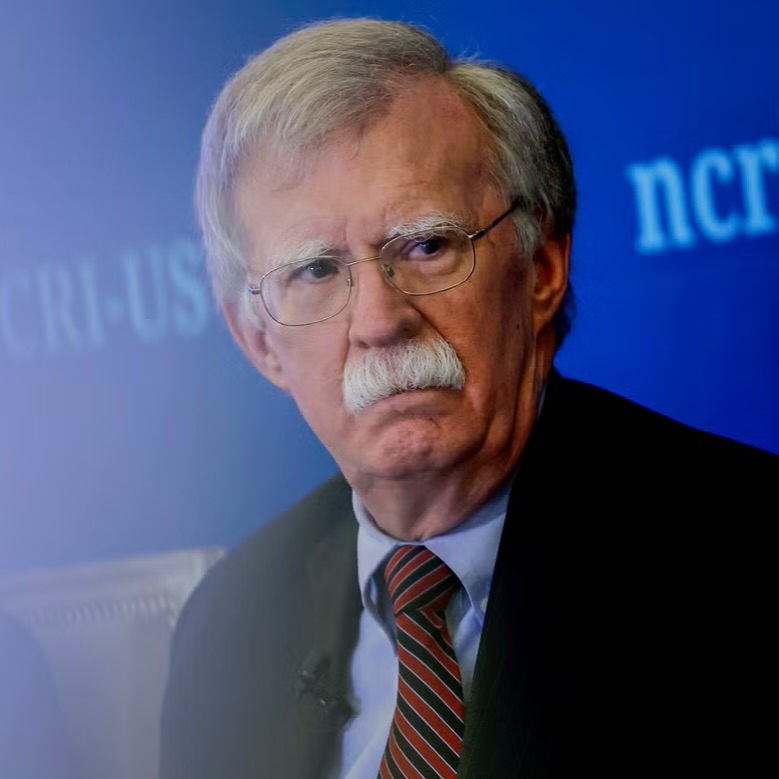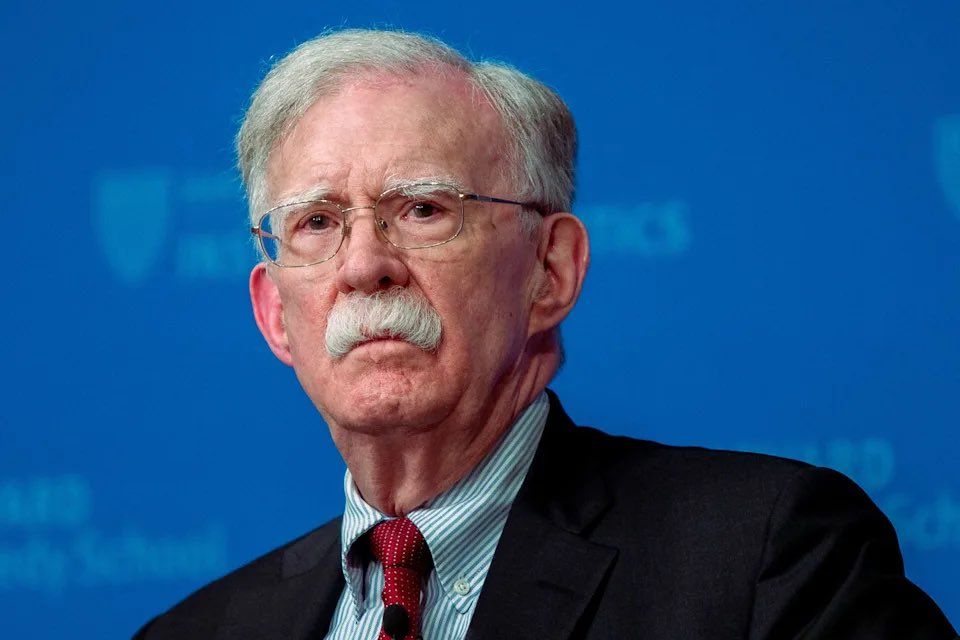John Bolton in 2025: From Powerbroker to Indictment
John R. Bolton, once a central architect of U.S. national security policy, now finds himself facing a federal indictment that could reshape not only his legacy but also tensions over executive power, classified materials, and political accountability. In 2025, Bolton’s transition from insider to outlier has become one of the more consequential legal and political sagas of the Trump era.
Who Was John Bolton to Trump?
John Bolton served as Donald Trump’s National Security Advisor from April 2018 until September 2019. He was a consistent voice for maximum pressure on Iran, skeptical diplomacy with North Korea, and an assertive, unilateral U.S. foreign policy stance. Their relationship, however, was often fraught: Bolton frequently clashed with Trump’s impulses to negotiate or de-escalate, leading to a tense coexistence. After his departure, he became a vocal critic of Trump’s foreign policy, publishing The Room Where It Happened, which revealed internal disagreements and sparked considerable controversy.
What Nationality Is John Bolton?
Bolton is American, born in Baltimore, Maryland, on November 20, 1948. Raised in a U.S. environment and steeped in American political and defense circles, his career has been fully rooted in U.S. government service, foreign policy, and national security.
Bolton’s Career: Hawk, Diplomat, Contrarian
Early Trajectory & Government Service
Bolton’s public service spans multiple Republican administrations. He held roles in the Reagan and George H.W. Bush eras, served as Under Secretary for Arms Control, and later as U.S. Ambassador to the United Nations (2005–2006). Over decades, he cultivated a reputation as a doctrinaire hawk—unyielding on state actors like Iran, North Korea, and Syria.
Trump Era & Break with the White House
When he joined the Trump administration, Bolton sought to steer policy toward strikes, regime change, and robust sanctions. He pushed to withdraw from multilateral arms agreements and to escalate U.S. posture abroad. But his combative approach and disagreements with Trump’s more transactional instincts led to friction. His exit in 2019 was widely cast as a falling out over strategy and personality.
Following his exit, Bolton pivoted to critique. He exposed internal debates, criticized policy reversals, and positioned himself as a counterweight to what he saw as weakness in Trump’s second term.

John Bolton
The 2025 Indictment: Charges, Claims & Allegations
Search and Seizure
In August 2025, FBI agents raided Bolton’s homes and offices in Maryland and Washington, D.C., seizing devices, documents, and printed materials labeled classified or potentially sensitive. Reports suggest the scope included iPhones, USB drives, desktop computers, and printed “daily activities” notebooks. Many items were tied to Bolton’s time in office. (The FBI raid detail is documented in multiple court filings and reporting. see AP News)
The Indictment
On October 16, 2025, Bolton was indicted by a Maryland federal grand jury on 18 counts under the Espionage Act, including eight counts of unlawful transmission and ten counts of unlawful retention of national defense information. Prosecutors claim that he shared over 1,000 pages of classified or sensitive diary-like notes with two relatives—his wife and daughter—through messaging and personal email, and stored classified material at his residence and office. (This is reported by Reuters in its coverage of the indictment. Reuters also notes potential hacking of Bolton’s email by an Iranian-linked actor. Reuters+1)
Bolton’s legal team counters that these documents were personal reflections, reviewed by government officials, and did not pose security harm. He maintains the charges are politically motivated. (As he has publicly asserted in statements following the indictment. The Washington Post+1)
Surrender and Court Appearance
Bolton surrendered to authorities on October 17, 2025, and appeared in federal court in Greenbelt, Maryland. He did not speak publicly at his initial appearance but issued a statement pledging to defend his “lawful conduct” and to expose what he described as abuse of prosecutorial power. (Documented in Reuters coverage of his court surrender. Reuters)
He faces potential prison time—each count can carry a maximum sentence of up to 10 years—but sentencing would depend on judicial discretion, cooperation, and other legal factors.
Business & Policy Implications
Legal Precedent & Executive Power
Bolton’s case could redefine how former officials handle sensitive information and remake the boundaries between personal notes and classified material. It raises questions about prosecutorial discretion in politically sensitive prosecutions and whether precedent will chill post-government authorship.
Political Weaponization & Selective Enforcement
Many observers view the timing and targeting as suspect. Bolton’s shift from senior Trump insider to harsh critic makes the indictment politically resonant, fueling debate about whether the Justice Department is being wielded to punish dissent. (Analyses in Vox and The Guardian emphasize this tension. Vox+1)
Impact on Foreign Policy Commentary
Bolton has been a prolific foreign policy commentator since leaving office. His indictment may hamper or silence his voice, particularly as he faces restricted access to sources, classified insight, and legal constraints.
Market & Institutional Risk Signals
For defense, intelligence, and government contractors, the case underscores how access, classification, and “insider knowledge” can be dangerous liabilities. It may prompt internal reviews in firms and organizations about document handling, post-government practices, and risk mitigation for executives with security knowledge.
The Path Forward & What to Watch
-
Pretrial motions & classification disputes: a major chunk of the legal battle will be whether the documents are properly classified, whether Bolton had declassification authority, and how much “diary privilege” shielding will apply.
-
Plea negotiations or trial: Bolton may seek a plea deal or fight the case to trial. How aggressively prosecutors push could depend on political winds and interlocutors.
-
Appeals & constitutional challenges: this will likely spur arguments about First Amendment protections, executive privilege, and post-service classification authority.
-
Reputational stakes: whether exonerated or convicted, Bolton’s public brand is at risk. A conviction would stain his long career, while a vindication would amplify him as a martyr in political narrative.
Conclusion
John Bolton’s journey from inside adviser to embattled defendant is a powerful illustration of how knowledge can be both power and peril. His 2025 indictment places him at the center of a fraught collision between national security, public accountability, and political retribution. For business and policy observers, it signals that the rules of the game are shifting—especially for those who carry secrets and hold competing loyalties.
The courtroom may determine Bolton’s fate; the broader struggle may define how America governs memory, secrecy, and dissent under fire.
Related: Charlie Kirk ‘Would Have Run for President,’ Widow Says














